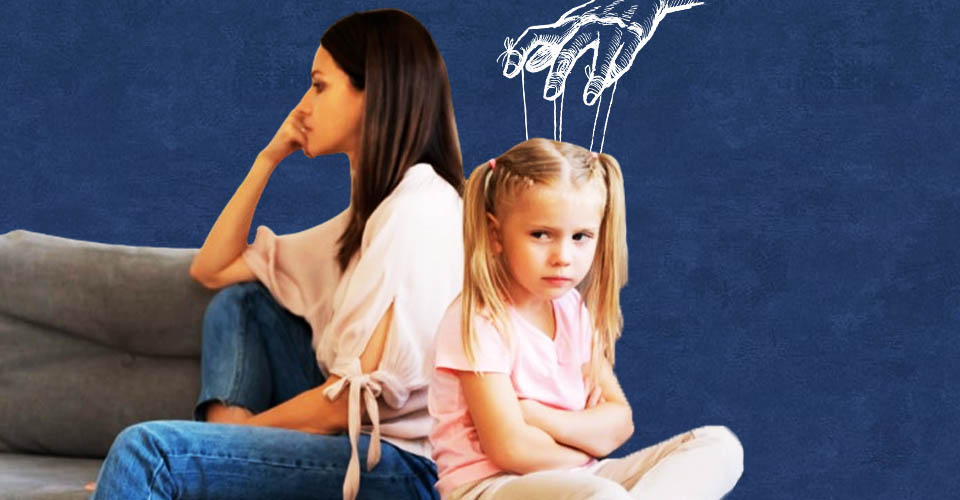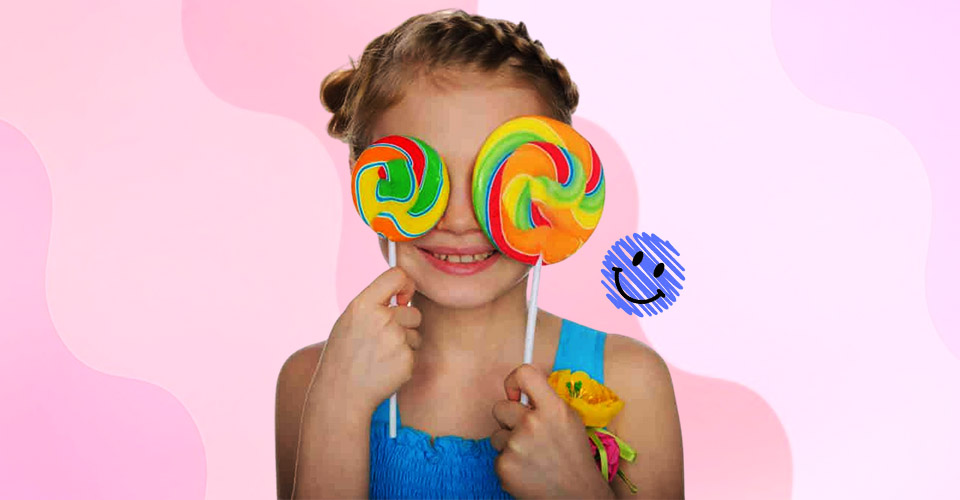As someone who has been blamed for the mistakes my parents made, I sit down to write this blog to address the issue of gaslighting children. It might be completely unconscious to you and that is why it is all the more important to actively look into it.
Invalidation and the lack of acknowledgment are the backbones of parental gaslighting. In the minds of the parents, they become the victim and their child the abuser. It might seem obvious but parental gaslighting is a severe form of manipulation.
Researchers have associated gaslighting children with the same as that bullying they face in school. In my opinion, it is high time for us as a society to address this issue. It might seem the norm in your childhood but gaslighting is traumatic for children of all ages.
So if you are a parent and you think you are gaslighting your kids, I ask you to read through this article and take the steps necessary to protect your child. It’s a personal message from someone who has been gaslighted their entire childhood.
What Does Parental Gaslighting Actually Mean?
Parental gaslighting involves psychological manipulation by a parent or caregiver, causing a child to doubt their memory, perception, or judgment. This form of emotional abuse can manifest in various ways, including through specific phrases and behaviors that undermine the child’s sense of reality.
One of the most common phrases parents use to gaslight their kids is, “You are making a big deal out of nothing” or something like “The reason for my criticism is because I love you”. But it does just stick to constructive criticism now does it?
Read more: Parental Gaslighting: How Parents Gaslight Their Children And Break Their Hearts
This is what parental gaslighting is. You start completely invalidating your child’s feelings and emotions. Some parents even feel like they can control how their child is feeling, for example, “You are not frustrated you are just tired.” This can make kids question their feelings.
Growing up in a single-parent household, one of the most harmful and most common things I heard was, “You are just like your father!” Do you understand the harm it does to your kid? They start blaming themselves for your divorce and develop deep relationship traumas that can destroy your child’s ability to form meaningful relationships.
The root causes of parental gaslighting behavior can be varied. It may stem from the parent’s upbringing, where they were modeled similar behaviors. Now ask yourself, am I doing these things? Remember acknowledging a mistake is the path to rectifying it.
Helpful Tips For Parents To Avoid Gaslighting Children
As someone who has experienced a childhood affected by gaslighting, I want to share some critical insights with parents to help them avoid similar behaviors with their children:
1. Try to respect your child’s needs
We are all different human beings and we all have different needs and wants. It might seem simple, but I have seen parents fighting for their dear lives to get a grasp on this concept. I understand that you want the best for your children. But do they want the same thing?
In my opinion, sometimes taking a step back helps to widen your field of view. It helps you to look at and understand different topics and issues. Well, it is the same with children. It might sound trivial to you but that “fluffy blanket” has more importance to your child than you realize.
I cannot stress this enough but the denial of your child’s feelings makes them lose their trust towards you. This often leads to parental alienation and you may even completely lose contact with your child in the future. So you must take note now!
Read More: How To Raise A Child? 5 Step Guide For Raising Happy Kids
2. Be a motivator, not a criticizer
Criticism may be the highest form of motivation, but it’s important to balance this positive reinforcement. Your criticisms may come from a place of care and love but it does not have the same impact that you may be hoping.
One of the most vague things I have heard is, “I criticize you because I love you!” This can confuse the living out of an adult let alone your toddler!
What I recommend is a more constructive approach. You must criticize the ‘wrong actions’ of your child. But it can go a further distance if you pair it up with the model behavior you want in your children!
You are a source of empathy and care for your child not a drill sergeant! It’s more beneficial to offer constructive feedback that’s given with empathy and support. This kind of feedback focuses on specific behaviors or actions, not the child as a person.
You want your child to grow and develop and rectify their mistakes not to start asking about their existence and reality. Being a source of constant criticism you lose their respect and even if you have legitimate criticism, the constant scolding does not make a difference anymore.
It’s about guiding them towards better choices and helping them learn from their mistakes, not making them feel bad about themselves.
3. They are still children, not adults
It might seem obvious but parents seem to forget that their kids are still just children! Your expectation that your child should behave more ‘maturely’ is doing more harm than good. And it’s high time that you realize this.
Imagine this: You might want to visit your neighbor or set up a backyard barbecue on the 4th of July whereas your child might find fireworks more entertaining. Expecting an 8-year-old to behave the same way as a 28-year-old, is an extreme form of parental gaslighting.
You need to understand that children, due to their stage in development, have different needs, interests, and ways of interacting with the world compared to adults. Expecting them to behave like an adult may seem unfair and unrealistic! This creates a sense of inadequacy in your child making them question their feelings and emotions.
As parents, it’s essential to recognize and embrace your child’s developmental stage. This understanding allows you to provide the support and environment they need to grow and learn effectively
Read More: 20 Candid Revelations On Things Parents Dislike About Kids
4. They have their own life experiences, respect them
Recognizing and respecting the unique life experiences of children is a vital aspect of nurturing and empathetic parenting.
Children, even at a young age, accumulate their own set of experiences, feelings, and perspectives. These experiences are formative and play a significant role in their personal development.
Parents need to understand that their children’s experiences are valid and significant, even if they seem minor or trivial from an adult’s perspective. For example, a child’s first day at school, their interactions with friends, or their experiences in a new activity are all significant events in their world. Listening to and valuing their stories and feelings about these experiences shows that you respect and acknowledge their individuality.
This respect for their experiences helps children develop a strong sense of self. It encourages them to open up about their feelings and thoughts, knowing that they will be taken seriously. This not only strengthens the parent-child bond but also fosters a safe environment where children can express themselves without fear of dismissal or judgment.
5. Understand that times have changed
Understanding that times have changed is crucial for effective parenting. As a parent, you’re raising children in a world that’s significantly different from the one you grew up in. Embracing this change doesn’t just mean keeping up with the latest trends or technology; it involves recognizing that the social, cultural, and technological landscape your children are navigating is new territory.
You need to be aware of how digital advancements, like social media and online platforms, influence your child’s life. Their way of learning, interacting, and entertainment is different from what you experienced. This digital era brings unique opportunities for learning and connection, but it also introduces challenges like online safety and the impact of social media on mental health.
Moreover, societal values and conversations around topics like mental health, inclusivity, and diversity have evolved. Your children are exposed to these discussions earlier and in more depth than you might have been. Being open and informed about these issues will help you guide your children more effectively and empathetically.
However, amidst all these changes, the essence of parenting – providing love, support, understanding, and guidance – remains constant. The key for you as a parent is to apply these timeless principles in a way that resonates with the modern contexts your children are part of.
Read More: What Is Childhood Trauma? 4 Signs of Lingering Childhood Hurt
A Word From Mind Family
As we conclude this discussion on avoiding gaslighting children, it’s essential to reflect on the insights shared. From Mind Family, we want to reiterate that understanding and modifying our parenting approaches can significantly impact our children’s emotional and psychological well-being.
The points discussed in this article are more than just guidelines. They represent a shift in mindset that is crucial for the healthy development of our children.
Parental gaslighting, often unintentional yet profoundly harmful, can distort a child’s sense of reality and self-worth. By being more conscious of our interactions and the words we use, we can prevent this. It’s about creating an environment of trust, understanding, and encouragement, where our children can grow into confident, well-adjusted adults.
Every step you take as a parent towards understanding and nurturing your child’s individuality and emotional needs is a step towards a healthier, more harmonious family dynamic. Remember, the goal is not to be perfect but to be aware, and empathetic, and continuously strive for improvement.
Frequently Asked Questions (FAQs)
1. What is parental gaslighting?
Parental gaslighting is a form of psychological manipulation where a parent causes their child to question their memories, perception, or judgment. It often involves invalidating the child’s feelings and experiences, leading to confusion and self-doubt in the child.
2. How to avoid gaslighting children?
To avoid gaslighting children, respect their feelings and experiences, offer constructive feedback instead of criticism, understand their developmental stage, and adapt to their needs. It’s about creating an environment of trust and understanding, encouraging open communication and empathy.
3. Can parents gaslight their children?
Yes, parents can gaslight their children, often unintentionally. It occurs when they dismiss, trivialize, or question the child’s feelings and experiences, leading to the child doubting their reality. Being aware of this behavior and its impact is crucial for preventing it.















Leave a Reply